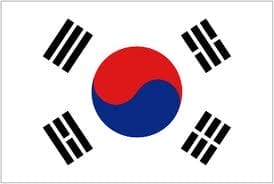Ask faculty members who spent a week in Korea last spring what they were most impressed by and they will invariably mention the Samsung Human Resources Development Center.
At Samsung Electronics, one of Korea’s most powerful family-run industrial groups, employees receive 21 days of on-the-job training a year at a cost to the company of $2,000 per employee. “Koreans value education tremendously,” says Jean Lemaire, professor of insurance and actuarial science and one of five faculty members who participated in the international seminar to Korea last May. “Every day Samsung employees view a video containing news related to the company. An educated work force is one of Korea’s major assets.”
Lemaire was joined on the trip by Leonard M. Lodish, Samuel R. Harrell Professor of Marketing; Eric Johnson, professor of marketing, operations and information management and psychology; Philip Nichols, Ronald Koenig Term Assistant Professor of Legal Studies; Scott Armstrong, associate professor of marketing, and Jeffrey Sheehan, associate dean for international relations.
The faculty visit came at a time when Korea is increasingly viewed by the West as an economic powerhouse undergoing dramatic changes in the way it does business, both at home and abroad. The skyrocketing costs of both land and labor is forcing the country to switch from a manufacturing orientation to a more service-oriented one. At the same time, labor unions are demanding higher wages for their employees, threatening the prosperity that made these demands possible and creating the danger that Korean industry could become uncompetitive worldwide.
Meanwhile, a move towards internationalization — opening up markets to imports and promoting more competition — has brought pressure to deregulate what has been a highly regulated, government-controlled economy. The chaebol — a group of family-run conglomerates that dominates Korea’s economy — is reportedly beginning to adapt to market forces by establishing new plants abroad and introducing more efficiency and focus into their operations.
In the midst of these changes, Korea’s booming economy is expected to grow by eight percent a year and the standard of living for most Koreans is improving rapidly. “It’s a brand new game, both for the Koreans and the rest of the world,” says Sheehan. “It means tremendous opportunities but also many risks.”
In addition to touring Samsung Electronics and its education facility, the Wharton contingent visited a shipbuilding facility owned by Daewoo Heavy Industries and an auto manufacturing plant owned by Hyundai Motor Co. Faculty members heard presentations on Korean politics, industrialization and unification; visited an observation tower on the border of North Korea; and individually contacted companies and/or organizations that reflected particular research interests.
Lemaire, who is editor in chief of the bulletin of the International Actuarial Association, visited with the Korean actuarial association and also spoke to a group of insurance executives and regulators on Korea’s current efforts to deregulate the auto insurance market. Lemaire was involved in Europe’s efforts at auto insurance deregulation several years ago and recently published a book that studied the ratemaking systems of, among other countries, Korea. His lecture received extensive coverage in the Korean press.
Len Lodish, whose research interests include marketing experimentation, sales force decision support, and promotion and advertising strategy, saw significant changes ahead for Korean retailing. “Currently, most products like appliances and fashion accessories are available at franchise stores that sell just one brand and sell it on consignment,” he says. “That’s obviously inefficient, because the consumer has to go to different stores if he or she wants to compare goods. In addition, the stores probably don’t sell as much per square foot as they could if they had more brands to offer. So it’s a matter of time before Circuit City and others come over to Seoul, and in fact Price Club has already made the move.”
Of course it’s not easy for foreign companies to enter the Korean market, Lodish adds, because a Circuit City or Price Club trying to stock Korean merchandise in their outlets will find resistance from the current system. “It’s only when Korea opens up the market to imports, which is beginning to happen now, that competition becomes feasible,” he says.
Eric Johnson, who has done research on the role of trust and perceptions of fairness, “found that, compared to the U.S., agreements here are meant differently. In Korea, you agree on a set of principles, not the technical details. Koreans care that the spirit of the agreement is carried out rather than the legal stipulation. Americans have a hard time with that.”
Another — and more apparent — difference between Korean and U.S. society is the economic role played by women. Women comprise less than five percent of the workforce, yet they have a clearly dominant role with respect to household budgeting, discretionary spending and financial planning.
“The custom in Korea is that the husband goes out and works, brings home a paycheck and turns it over to his wife,” says Lodish, who learned about this arrangement during his visit to a Chrysler dealer. “She puts the money in her own account and gives her husband an allowance. She is the one who decides on all the major purchases, including investments, insurance and cars.”
Wharton’s interest in Korea reflects not only the country’s growing role in international trade, but also the fact that Korea is home to more than 100 Wharton MBA and PhD graduates. Many alumni — led by Sehoon Lee, WG’75, president and CEO of Hankuk Glass Co. — helped arrange activities, lectures and social events for the visiting faculty. The trip was funded by six Korean companies, all of them headed by, or associated with, Wharton graduates.

























